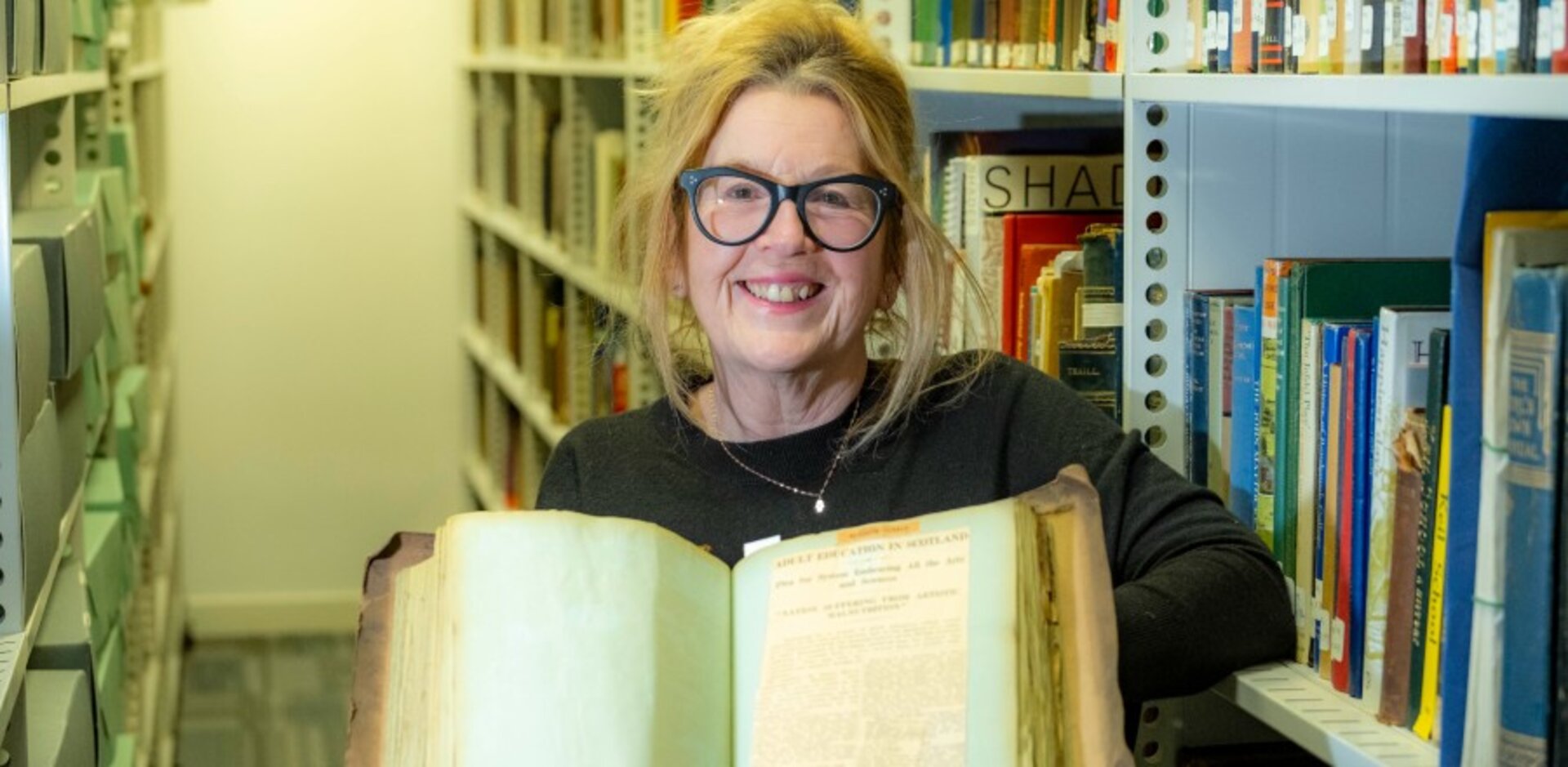University gives home to education for the common good

Historic records documenting Scotland’s education for the common good over the past 120 years have been donated to Glasgow Caledonian University’s famous Archive Centre.
The amazing collection of more than 100 boxes of historic records from the Workers’ Educational Association Scotland will be available to the public in the Sir Alex Ferguson Library on campus from today, to mark International Day of Education.
GCU will now be able to showcase historical treasures such as a 1930s socialist library, one of the projectors that was central to the WEA’s teaching, and an abundance of unique printed records that capture the development of adult education in Scotland.
Founded in 1903, the WEA is a charity dedicated to bringing professional education into the heart of communities. With the support of nearly 2,000 volunteers, 1,000 tutors and over 6,000 members across the UK, it delivers accessible courses for adults from all walks of life. In the last academic year, almost 30,000 people studied with the WEA.
GCU Archivist Carole McCallum said it was fitting to launch the collection on International Day of Education, marked by the United Nations General Assembly as a celebration of the role of education for peace and development.
Carole said: “We are the University for the Common Good and it is perfect that today we are announcing we have become the home of a piece of history that represents education for the common good.”
The University moved to preserve the historic records after WEA Scotland began to downsize its estate – most of its courses are run in community venues and online, rather than at its offices.
Ray McCowan, Director WEA Scotland, said: “The WEA Scotland Board agreed to a number of property moves to reduce costs and improve the quality of facilities for learners, staff and members. As these moves took place, it quickly became apparent how many books and materials had accumulated over the years. In some cases, this material was stored in conditions that posed a risk to its long-term preservation. There was a further risk in that there was no single record and no single organisation-wide view of what was stored where.”
After taking professional advice, the WEA Scotland Board agreed the best way to preserve this material for the WEA and the wider community in Scotland was to establish a national archive centre.
Ray said: “Faced with such a volume of material, the challenge was to determine what was of true legacy value. Books with minimal financial value, or that were easily accessible in public or university libraries, were excluded. Books and materials that illustrated the WEA’s legacy and heritage, or were important works in the history of adult education, were retained.”
An unexpected discovery during this process was the remnants of the Peter McOmish Dott Memorial Library − a subscription library of more than a thousand books curated by the socialist’s son, Eric Dott.
While imprisoned during the First World War as a conscientious objector, Eric spent time debating religion, philosophy and politics, developing his father’s ideas of socialism. Once released, Eric became a respected doctor at the Royal Hospital for Sick Children.
When Peter died, Eric administered the profits of his father’s art dealership for the benefit of socialism. He built the Memorial Library, which made an important contribution to non-partisan political life in Edinburgh in the 1930s and 1940s. Part of that library was later gifted to the WEA.
As well as the surviving books, the WEA also has the Minute Books and an original 1938 book catalogue of this important library. It grew to have 1,000 members and 8,000 issues in its first year, with eventually 3,000 books, including novels and plays, on its shelves.
Carole added: “This library makes up a small proportion of the 100 plus WEA boxes now safely deposited in GCU’s Archive Centre. The process of bringing the collection together and donating it to GCU during a pandemic was quite the story.”
